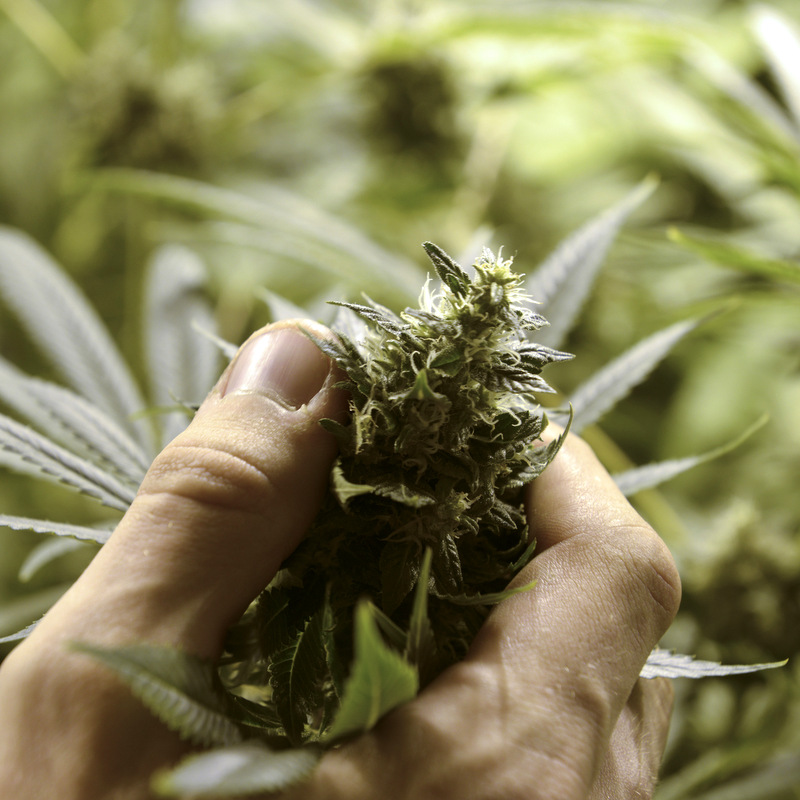
AUGUSTA — Retail sales of marijuana may still be a year away, but cannabis-related cash is already flowing at the Maine State House as businesses jockey to influence the policies that will govern the lucrative recreational market.
Between Dec. 1 and March 31, clients paid lobbyists more than $140,000 for representation on marijuana-related issues in Augusta even though lawmakers have only taken up a handful of the roughly 50 bills connected to the drug.
But observers say it’s no surprise that businesses and interest groups are hiring lawyers and consultants adept at navigating the State House hallways, given predictions that sales of legal marijuana could surpass $200 million within three years.
“It strikes me that we are building a regulatory structure from the ground up so people were very concerned about how it gets done,” said Rep. Erik Jorgensen, D-Portland, a frequent target of lobbying as one of 17 members of the Legislature’s Marijuana Legalization Implementation Committee. “I do think when you are starting a whole new industry, you expect to see that.”
LOBBYISTS PACK REGULATION TALKS
Last fall’s referendum to legalize marijuana for adults age 21 and over was only the first step in the process. Now lawmakers and state officials must craft the licensing, regulatory and enforcement infrastructure for retail marijuana sales to begin in Maine sometime next year. And those proceedings have generated plenty of interest.
The twice-weekly meetings of the Marijuana Legalization Implementation Committee are often filled with attorneys from many of Maine’s largest law firms as well as paid consultants and people with vested interests in the marijuana industry.
At least a dozen groups or businesses have hired lobbyists to represent them on marijuana issues in the Legislature, according to documents filed with the Maine Commission on Governmental Ethics and Election Practices. That may represent a partial listing, however, because the current reports only cover expenditures through March 31 and because of limitations in searching the ethics commission database.
They include medical marijuana dispensaries and caregivers, a cannabis intellectual-property company called Narrow Gauge Holdings, a California-based pharmaceutical firm, Greenwich Biosciences, that produces “cannabinoid therapeutics,” as well as two of the organizations behind last year’s referendum, Legalize Maine and Campaign to Regulate Marijuana Like Alcohol.
Clients spent more than $2 million lobbying the Maine Legislature between December and March 31. So the $142,141 spent on marijuana-related lobbying – out of the hundreds of issues under consideration by lawmakers – represents a substantial chunk of that total. And spending on lobbyists will only grow as the committee continues its work through next year.
It is too early to say where marijuana lobbying will rank compared with other issues, although it’s not unprecedented for single issues to rack up six-figure lobbying expenditures. During last year’s debate over a contentious solar energy bill, for instance, more than two dozen companies and organizations lobbied lawmakers. Two national solar energy companies, SunRun and Solar City, spent more than $47,000 alone on lobbying.
And in 2015, the New Brunswick company J.D. Irving and its subsidiary spent more than $100,000 lobbying for passage of a bill to revamp Maine’s mining laws.
DISPENSARIES AMONG BIG SPENDERS
Two of the biggest spenders as of March 31 – the last date for which financial disclosures have been filed – were dispensaries that grow and supply medical marijuana to patients but are hoping to carve out a piece of the recreational market as well.
Wellness Connection of Maine, which operates four of the state’s eight licensed dispensaries, had paid Dan Walker $23,250 for lobbying in the Legislature. A veteran of medical marijuana policy issues in Maine, Walker also had four lobbyist associates listed as working with him on the account. Remedy Compassion, an Auburn-based dispensary, has paid Edward Roy Dugay for representation in Augusta.
Patricia Rosi, CEO of Wellness Connection of Maine, said her organization is involved in the policymaking process because it feels “a responsibility to the thousands of people we serve every day.” But Wellness Connection is also looking ahead to the recreational market, Rosi said, because dispensaries are already well-positioned in terms of regulatory oversight, quality control and a proven track record of paying taxes on their products.
“Yes, we are here every week and lobbying is a priority because our voices must be heard,” said Rosi. “All of us dispensaries have a vested interest in participating” in the discussions.
TOP-SPENDING LOBBYIST IS . . .
The two dispensary companies are also members of another group, Maine Professionals for Regulating Marijuana, that had wracked up the largest lobbying bill – $54,338 – as of March 31. The recipient of that money, attorney Toby McGrath, a consultant who leads the government relations and campaigns practice group at the law firm Drummond Woodsum.

